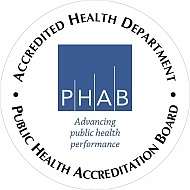|
An employee at the Camillus Hills Golf Course, also known as the Camillus Country Club, tested positive for the hepatitis A virus. Anyone who consumed food or drinks from Camillus Hills Golf Course/Camillus Country Club during the timeframe of October 13 to 24, 2019 was potentially exposed to the hepatitis A virus. Those who have been fully vaccinated against hepatitis A are protected. See the October 30, 2019 press release.
Onondaga County Health Department (OCHD) is advising anyone who consumed food or drinks at the Camillus Hills Golf Course/Camillus Country Club during the timeframe of October 18 to 24, 2019 to receive hepatitis A vaccine as soon as possible, and to call OCHD at 315.435.5752 beginning Thursday, October 31 at 8:30 am. Vaccination can reduce your risk of becoming ill, but is only effective if given within the first two weeks after exposure.
Those who consumed food or drinks at the Camillus Hills Golf Course/Camillus Country Club during the timeframe of October 13 to 17 may have been exposed but will not benefit from hepatitis A vaccine to prevent infection from this exposure. These individuals are encouraged to monitor themselves and their families for symptoms for 50 days after the exposure. If you have any symptoms, contact your healthcare provider and be sure to tell them that you may have been exposed to hepatitis A.
Symptoms may include: fever, fatigue, loss of appetite, nausea, vomiting, abdominal pain, dark-colored urine, clay-colored stools, joint pain, or jaundice. For more information about symptoms visit www.cdc.gov/hepatitis/hav/afaq.htm#C1.
No, the employee followed all proper handwashing and food safety techniques, so the risk of infection is low. However, we are erring on the side of caution by recommending treatment for the people who may have been exposed. The restaurant owner and staff are complying with all recommendations from the state and local health department. There is no risk to eating at the Camillus Hills Golf Course/Camillus Country Club at this time.
Hepatitis A is an acute liver infection caused by the hepatitis A virus.
Hepatitis A usually spreads when a person ingests the virus unknowingly from objects, foods or drinks contaminated by the virus.
Most people that get diagnosed with hepatitis A may feel sick for weeks, but most usually recover completely and do not have long-term liver damage. In some rare cases, typically for people over the age of 50 or with pre-existing liver conditions, hepatitis A may cause liver failure and potentially death.
OCHD continues to encourage hepatitis A vaccination for the general public to protect against contracting the illness from any source of exposure. Hepatitis A vaccine is given in two doses, six months apart. Speak with your healthcare provider about getting vaccinated. For more information about the vaccine please visit https://www.cdc.gov/hepatitis/hav/afaq.htm#E1.
|


